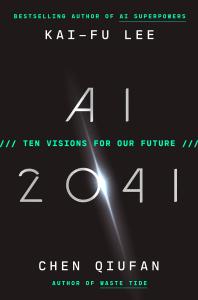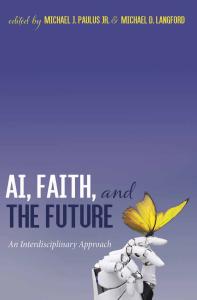
A few weeks ago, the Pew Research Center released a report on “The Future of Well-Being in a Tech-Saturated World.” Responding to the recent dystopian turn in our perceptions about technology, Pew asked nearly 10,000 “technology experts, scholars, and health specialists” the question: “Over the next decade, how will changes in digital life impact people’s overall well-being physically and mentally?”
These experts were given three options: well-being would be more harmed than helped, more helped than harmed, or not changed much. Of the 1,150 or so experts who responded, 32% selected more harmed, 47% selected more helped, 21% selected not changed much.
Respondents were asked to elaborate on their choice, and the report includes an interesting (and alliterative) table of helps, harms, and remedies for well-being. Helps include connection, commercial and civic opportunities, crucial intelligence, contentment (or self-improvement), and continual improvement of the quality of life.
Harms include deficits (i.e., challenges to cognitive limits), addiction (a topic important enough to break the alliterative pattern), distrust and divisiveness, duress (“stress, anxiety, depression, inactivity, and sleeplessness”), and dangers (“to human interaction, security, democracy, jobs, privacy, and more”).
Potential remedies include reimagining systems, reinventing technology, regulation, redesigning media literacy (to include healthy use), recalibrating expectations (concerning “human-technology coevolution”), and recognizing that “all this” is “fated to fail.”
This report reflects a healthy mix of optimism and skepticism about our technological future. While more helps, harms, and remedies could be identified—such as care, depravity, and reflection—this report reminds us that technological progress includes both gains and losses. As illustrated by Albert Borgmann’s device paradigm, technology is a complex phenomenon. It has a constructive dimension as well as a destructive dimension, and our optimism should be tempered with skepticism. The report’s last remedy is an appropriate admonition that we are not omniscient and omnipotent creators.
Some skepticism should be reserved for commercial appropriations of the terminology of well-being. Google has a new wellbeing site, announcing its dedication “to building technology that is truly helpful for everyone,” and Mark Zuckerberg’s notes for his US Senate hearing last month included talking points about time well spent under the heading of “wellbeing.” While it is important for designers of technology to be thinking about how their work may help and harm well-being, their considerations will be constrained by the goals and priorities of their organizations.
Over at “Data & Society: Points,” Christiaan van Veen articulates the limits of the industry-driven “ethics paradigm” in AI and the need for a stronger ethical foundation, such as the human rights framework. He writes:
The problem with this ethics paradigm in corporate strategies is that ethical values such as fairness or inclusiveness have no widely agreed-upon meaning. The inherent nebulousness of such ethical principles makes them rather unhelpful to ensure “good” corporate behavior. When is certain behavior “unfair”? And, more importantly, to whom are corporations accountable in case of “violations” of these ethical principles (if these principles can be “violated” at all)?
To realize greater societal and individual well-being, we need frameworks and narratives capable of providing us with historical resources, future hopes, and present values.
Pew’s report could have been titled “The Consolations and Desolations of Technology.” Nearly five hundred years ago, as he was slowly recovering from battle wounds, Ignatius of Loyola found himself reflecting on the story of his life, the lives of Jesus and the saints, and role of consolation and desolation. He described consoling experiences as those that increase faith, hope, and love and cause peace and joy. When we sense a lack of these, he observed, we experience desolation. Ignatius counsels patient endurance during times of desolation, for these darker periods of discernment can lead to self-knowledge and wisdom as we wait for future consolation.
















